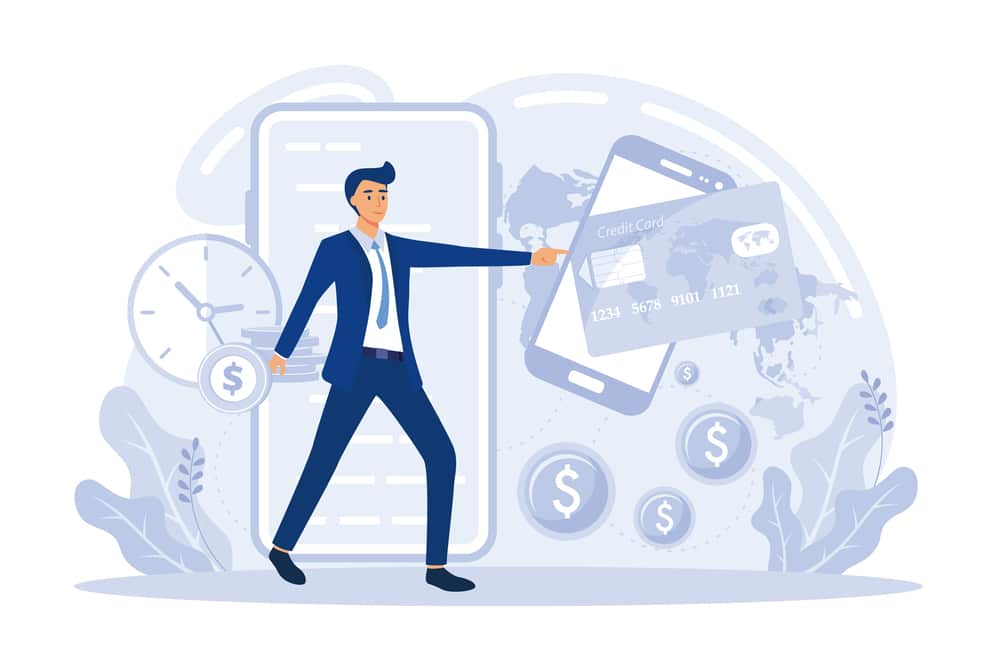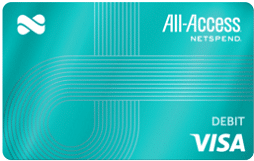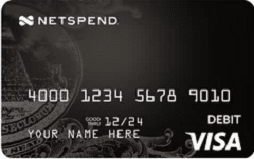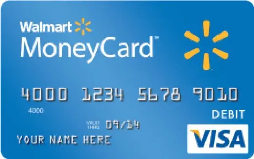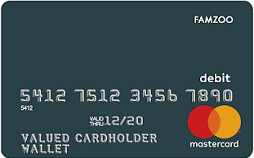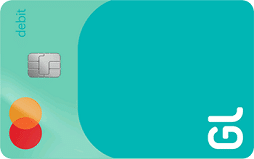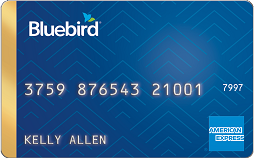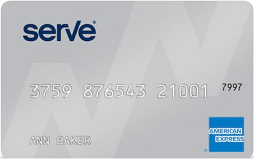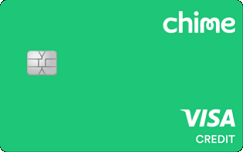Editorial Note: We earn a commission from partner links on Doughroller. Commissions do not affect our authors’ or editors’ opinions or evaluations. Learn more here.
It is estimated that about six million Americans do not have a bank account. The reasons for this vary. For many, they are unable to qualify for a bank account because of past bounced checks. Bounce too many checks, and you’ll find yourself in the Chexsystems, which many banks use to evaluate potential new banking customers. For others, it’s simply a distrust of the banking system or frustration with limited hours or the hoops one has to jump through to get service.
Whatever the reason, the unbanked often turned to expensive check-cashing stores to cash their weekly paychecks. Forbes wrote about this phenomenon, which costs consumers $10 billion a year in fees charged by check-cashing stores, payday loan providers, and others. It’s not at all uncommon for consumers to spend 3% or more to get a paycheck cashed.
Whatever the reason, an alternative is a low-cost or even free prepaid debit card. Our list of the best prepaid debit cards is based on our research into the prepaid card market dating back more than a decade.
Featured Prepaid Debit Card
Netspend® All-Access® Account
The Netspend® All Access® Account is our favorite prepaid debit card because of the full variety of features it offers. From getting paid via direct deposit faster and earning rewards for your purchases to having more than 130,000+ available reload centers to use, this card does everything extremely well considering the low fee structure.
Card Features:
- Open an All Access Account and start spending! (Debit card not required)
- Get paid faster than a paper check with direct deposit with a Netspend All-Access Account.
- Shop and pay bills on the run with a Netspend All-Access Account.
- Card use is subject to activation and ID verification. Terms and Costs apply.
- Deposit Account opening is subject to registration and ID verification. Online access is required to complete registration. Terms & fees apply. Established by Pathward, N.A., Member FDIC.
List of the Best Low Fee and Free Prepaid Cards
The key to finding the right prepaid credit card is to find one that charges no fees or very small fees. All prepaid cards charge various fees, but some of them waive some or all of the fees if you sign up for direct deposit. So here are the top free prepaid cards and low-fee prepaid cards to consider.
Netspend® Visa® Prepaid Card
For those wanting to use a prepaid debit card as an alternative to a bank account, the Netspend Visa Prepaid Card and it’s top-notch fee structure make it one of the best options. The card’s features are helpful to those without a bank account and reloads are convenient.
Card Features:
- With Direct Deposit, you can get paid faster than a paper check.
- No late fees or interest charges because this is not a credit card.
- Use the Netspend Mobile App to manage your Card Account on the go and enroll to get text messages or email alerts (Message & data rates may apply).
- Card use is subject to activation and ID verification. Terms and Costs apply.
- Card issued by Pathward N.A., Member FDIC. Card may be used everywhere Visa debit card is accepted.
Walmart Money MasterCard
The Walmart Money MasterCard is perfect for the everyday Walmart shopper. As an overall prepaid debit card, it keeps fees low (and can keep them at zero if you set up a monthly $500 direct deposit) and as a Walmart spending option, it provides big reward opportunities.
Card Features:
- Early direct deposit will get you paid up to four days early.
- Overdraft protection up to $200.
- Earn 3% cash back at Walmart.com, 2% cash back at Walmart fuel stations, and 1% cash back at Walmart stores. Up to $75 cashback can be earned each year.
- Add up to a total of four additional approved family members at no cost.
- 2% APY on savings (interest is paid once, annually on your average daily balance for the previous 365 days / max balance $1,000).
FamZoo Prepaid Debit Card
I met the founder of FamZoo more than a decade ago. Bill Dwight started FamZoo as a way to help parents teach their children about money. Its list of family-friendly features is extensive and is the perfect debit card for your teen. The cost of FamZoo is as little as $2.50 per month per family.
Card Features:
- This is a convenient, affordable, reloadable prepaid Mastercard designed especially for families. Use it to share funds and teach your kids financial responsibility.
- Link to it and access it through FamZoo’s Virtual Family Bank app.
- A parent card, known as the primary funding card, is the default funding source for various transfers such as allowance, odd jobs, chores, one-time transfers, etc. Parents can monitor and control their children’s spending through a shared dashboard.
- It’s simple to use: The parent loads their funding card and can instantly transfer funds to the children’s cards. The parent simply reloads the parent card when funds get low.
- You can order more than one card per family member or allot a card for a dedicated purpose such as allowance, clothing, vacation, or lunch money.
Read our FamZoo Prepaid Debit Card Review
Greenlight Debit Card & Money App
Something a little different than the other prepaid debit cards on our list, the Greenlight Debit Card & Money App goes a few steps further in offering the opportunity for high-yield savings and investment advice. One monthly fee is charged depending on the plan you choose and the App blows away the competition.
Card Features:
- Earn up to 3% cash back on every purchase.
- Earn up to 5% cash back on savings.
- Set up a direct deposit and get paid two days early.
- Offers three different plans to suit your needs. Core, Max, and Infinity each offer different rewards and options and the first-month fee is free!
- Real-time notifications, instant transfers to and from your teens anytime, anywhere, and flexible controls that ensure you always know where your kids are spending their money.
Bluebird Prepaid Debit Card
The Bluebird Prepaid Debit Card is popular among prepaid options, probably because it is one of the most affordable prepaid cards.
This card is a great option if you are conveniently located near a Walmart, or are a frequent Walmart shopper already. With the lack of fees generally, the only drawback is it doesn’t offer the convenience of some other prepaid cards since you will likely have to go to a Walmart to reload your card.
Card Features:
- You pay a one-time $5 fee for the price of the card if you purchase it in person ($0 to sign up online).
- There is no reload fee to reload your card at any Walmart as long as you are reloading with a minimum of $20.
- The Bluebird2Walmart Money Transfer Powered by Ria also allows you to transfer money online to any recipient over the age of 18 (no Bluebird account required), nearly instantly. T
- Offers online bill pay, which allows you to pay bills and view the status of your payment once you have set up your card and account online (to be clear, this does not mean you will be setting up a bank account).
- Set up automatic reminders, not payments, to help you never miss a payment.
Serve® American Express® Prepaid Debit Account
The Serve® American Express® Prepaid Debit Account is a great way to manage your finances and save for retirement. With a $15,000 deposit limit, you can store your savings safely and securely while having access to direct deposit options that get you paid faster. Plus, the card caps monthly cash spending at $5,000 so you don’t have to worry about overspending or going into debt.
Card Features:
- Free reloads. American Express Serve members have access to a large network (45,000+) of free ATMs throughout the U.S., which means no more worrying about finding an ATM with low fees when making withdrawals or deposits.
- The robust mobile application gives users several tools for managing their accounts such as checking balances in real-time, transferring funds between cards, and setting up alerts for transactions.
- Multiple fraud protection options to keep your account secure at all times.
- Cash back rewards on qualifying purchases and discounts on select services like car rentals and online shopping portals
Alternative to a Prepaid Debit Card
Chime Spending Account and Visa Debit Card
Chime is a financial technology company whose mission is to provide basic financial services that are “helpful, easy, and free”. It offers a financial app and debit card that can be another good alternative to prepaid cards if you’re having trouble banking elsewhere.
Card Features:
- Get paid two days early with a direct deposit
- No overdraft fees
- Three different types of Chime accounts to choose from. In addition to the Spending Account, you can open a Savings Account or a Credit Builder to improve your credit profile and score.
- Mobile and in-person deposits are available and you can withdraw cash fee-free at a number of locations like Target, CVS, and Seven-Eleven.
Read our Chime Spending Account review
How Prepaid Debit Cards Work
A prepaid credit card works very similar to a bank debit or ATM card. You can add money to the prepaid card and use it anywhere Visa or MasterCard debit cards are accepted. Money can be added to most prepaid cards in one of several ways:
- Direct Deposit: Most prepaid cards allow you to have your paycheck, government check, or benefits check deposited directly onto the card. As described below, the direct deposit feature is extremely convenient and allows you to obtain a prepaid card for free or for a small monthly fee.
- Cash Networks: Cash can be added to most prepaid cards through one of several cash networks, including Green Dot, MoneyGram, Western Union, or Visa Money Link. These cash networks are located at many nearby stores, such as CVS, Walmart, Kroger, and UPS.
- Money Share: Prepaid cards also permit you to transfer funds from one card account to another. This is a convenient way to transfer money to friends and family and is why many college students carry prepaid cards.
Prepaid cards are part of either the Visa or MasterCard debit card network. As a result, prepaid cards can be used anywhere that Visa debit or MasterCard debit cards are accepted (which is just about everywhere). You can also use prepaid cards at ATM machines to withdraw cash.
Benefits of Prepaid Debit Cards
Prepaid debit cards, sometimes mistakenly referred to as prepaid credit cards, offer several benefits beyond a simple ATM card. Perhaps the key benefit is direct deposit of paychecks, government checks, and benefit checks. There are several prepaid cards that will waive all fees if you have your paycheck directly deposited to the card. With direct deposit, your paycheck will be added to your card on payday. You don’t have to go to the trouble and expense of driving to a check cashing store to cash your paycheck. And the money is available immediately. If you receive a government or benefits check, you can also have it deposited directly onto prepaid cards for no fee.
There is one other important benefit to these cards: online bill pay. The top prepaid cards can be used to pay bills online. Just like a bank account, you can have funds transferred from a prepaid credit card to pay car loans, the mortgage, utilities, or just about any other monthly expense. Because of this, a no-fee prepaid credit card is about as close to a bank account as you can get, without getting a bank account.
Here are some other benefits of no-fee prepaid cards:
- Guaranteed Approval: Unlike a bank or traditional credit card, prepaid cards won’t check Chexsystems or your FICO credit score before approving your application. Approval is guaranteed.
- No Credit Check: Because prepaid cards do not extend credit, there is no credit check run when you apply.
- No Bounced Checks: Because the prepaid card acts as a debit card, there is no risk of overdrawing your account. With no bounced checks, there is no risk of paying a bounced check fee.
- No Over Limit Fees: Credit cards charge a hefty fee when cardholders exceed their credit limit. With prepaid cards, you can only spend what you’ve added to the card, so there is no risk of exceeding a card limit.
- Free Direct Deposit: The prepaid cards listed below, all offer free direct deposit of paychecks, government checks, and other benefits checks. In fact, by using direct deposit, you can get a prepaid card for no fees at all.
- No Interest Charges: Since you’re not borrowing money on a prepaid card, you never pay interest. Prepaid cards keep you from spending more than you have.
- No Fees or Low Fees: For the cards listed below, they either charge no fees if you use direct deposit, or their fees are very low (and a lot lower than using check cashing stores).
- Online Bill Pay: This is a big advantage of prepaid cards. You can use your account to transfer payments to creditors or even other cardholders. It makes paying bills easy and safe, and reduces the risk you’ll miss a payment by mistake.
How to Choose the Best Prepaid Debit Card for You
Choosing the right debit card for you depends on your individual financial needs. Ask yourself: Why do I need a debit card? What would I most frequently use it for?
For example:
- If you often shop at Walmart, the Walmart MoneyCard Mastercard would be a sensible choice since it would enable you to earn cash-back rewards and other perks.
- If you have tweens or teens and want to control their spending while helping them learn about managing finances, you’ll want to look into FamZoo’s prepaid debit card.
- If you want to avoid paying monthly fees, including hidden bank fees, check out the Chime Visa debit card.
- Do you often deal with international money transfers? Look into the Western Union Mastercard prepaid card.
Pros and Cons
Prepaid debit cards are a popular choice for people who don’t or can’t have a checking or savings account at a bank. A prepaid debit card allows you to do virtually anything you would be able to do with a regular credit or debit card. You can always reload the card when it runs out of money, and it’s more convenient than carrying a large amount of cash.
Pros of a Prepaid Debit Card
- It’s safer than carrying cash – Generally speaking, having a load of cash is not the safest method of carrying money for numerous reasons (i.e. robbery, losing bills, etc.). If you are someone who gets paid primarily in cash, it could be much safer to have a card to deposit it on.
- More convenient than checks and cash – In addition to safety, cash is not the most convenient method of payment. Loading your cash onto a debit card will allow you to make faster transactions and even online purchases.
Cons of a Prepaid Debit Card
- Fees – As we explored above, there are some options that don’t require fees; however, some prepaid cards are designed to exploit those who don’t have the capital or means to get a checking and savings account. Fees are something to watch out for – you don’t want to pay just to be able to spend your hard-earned money or to keep it safe.
- Don’t get credit for spending on a prepaid card all the time – As an alternative to a traditional credit card, you will not build credit, or get any credit, for using a prepaid debit card as your primary spending choice. While it seems less risky to avoid going into too much debt, it can be just as risky to live without any credit at all.
- No Savings Attached – Most prepaid cards do not have a savings account attached to it or any account options at all (Netspend is one exception). While this is a reason people might choose a prepaid card over a checking or savings account, in the long term it can be detrimental not to have a savings account.
Prepaid Debit Card vs. Regular Debit Card?
A prepaid debit card is different from a regular debit card because it is not linked to a checking or savings account, and doesn’t require a bank account at all. You load money onto the card via cash, check, or another bank account, and then the card functions like a normal debit card. All of the big providers; Visa, MasterCard, and American Express- offer at least one prepaid option, and many even allow you to get direct deposits onto your prepaid card.
Prepaid debit cards offer more freedom than cash because you can make online bill payments or online shopping purchases and they are safer than carrying around a wad of cash all the time.
How We Came Up With This List
We came up with our recommendations after running a thorough and comprehensive check of the leading prepaid debit cards on the market. We’ve compared the different card features, terms, and fees and aggregated a list of the best free prepaid debit cards and low-fee prepaid cards.
We did our best to compile an inclusive list featuring cards that cater to people with different priorities, from the Bluebird Prepaid Debit Card for users close to retail outlets to the family-oriented FamZoo prepaid card.
FAQs
Do I need a bank account to get a prepaid debit card?
Nope! While you can have a bank account in addition to your prepaid card, the point of a reloadable prepaid card is that it does not require a bank account
Where can I use a prepaid debit card?
You can use your prepaid debit card just like a regular debit card, wherever your card provider (Visa, Mastercard, American Express or Discover) is accepted.
Can I boost my credit score by using a prepaid debit card?
Unfortunately, no. You can only earn credit by getting loans or lines of credit that report your payments and spending to one of the three major credit bureaus. However, a prepaid debit card may indirectly help you improve your credit by boosting your overall financial health.
Final Thoughts
A prepaid debit card is an easy, convenient payment option for people who try to avoid overspending, want to control their teenage children’s purchases, or don’t have a regular checking account. While some prepaid debit cards come with high fees, others may be cheaper than checking account charges. Compare offers by various prepaid card providers and opt for the card that best suits your needs.
We will add additional free and low-cost prepaid cards as well as free prepaid debit cards as they become available. If you know of other prepaid card offers that you think should be added to the list, please leave a comment.

